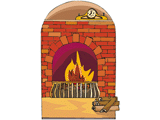Given the Amazon review of Companions, Analogies this bit makes the book sound like it needs to be in my library - not this month but later - " sensual stuff of the natural world coexists with philosophic riffs on the meaning of night scents, stars, fireflies..."
I'm acutely aware now of how an all encompassing view of our 'space' is not shared - Grandson, the one who will be applying for Law School, after traveling the world for nearly 2 years, he and a friend this fall are camping, crashing with friends, traveling by car across the US and are doing interviews along the way. The interview is about how and why folks love their space, particularly public space.
I was confused and asked, because the space discussed seemed to be only the land - I kept thinking how humans alter the space when for instance lights in parks alter the night so that some birds cannot nest that need a dark night and how that meant certain insects did not have a natural predator and then, how lights within or surrounding a park are not controlled so that the night sky is not seen - a park is developed, often more like a garden and playground rather than a place that is conducive to animal life - rather, a park is maintained with the idea to get rid of all animal life except for a few beguine, almost tame animals to assure safety for humans and for control over the grounds from unwanted paths, droppings, holes burred, trees scraped etc.
The answer - if a 3D space is discussed it then is about saving the environment - considered a separate topic - that space is not taken all of a piece that includes, seasons, weather, night.
Parks are often described as the lungs of a city and yes, there are many trees but there is an entire eco system with a tree that is missing in a park. Sadly, to hear the 'whole' the 'complete' as an understanding is compartmentalized - to include in the discussions the concept of 3D space is relegating the discussion to 'the environment' rather than the design of the interview, how you feel about public space takes my breathe.
The other aspect of the interviews has to do with social justice using the public space - not that, social justice is coupled with responsibility to the space and how that is democratized. which prompts the question, what does public space mean - Out of the concept of 'public' was the issue of homelessness and their use of parks affecting what is placed on the land excluding the needs of wildlife and what the night allows.
I'm thinking homelessness taken care of in a public park is simply a social issue without funding - prompts another question, whose livelihood tops when there is competition for the free use of public space - there is a pattern that most altering the land for a public space is to satisfy safety issues and an attempt to negate crime - are these the two factors that develop our parks and to heck with how we alter the needs of fish, fowl, and wildlife.
We do not examine the effects of light pollution that is supposed to provide safety - what safety a light in the tree canopy provides I do not know - maybe criminals will climb from tree to tree as their way to take advantage of folks and I guess we need to light the canopy to be sure a limb is not ready to fall on us during the night - ah so... and the big debate over the homeless using the parkland indiscriminately as a bathroom but no debate about animals who were removed for that reason.
All that, my rant on the compartmentalization of our responsibility for 'space' so that poems that have a "philosophic riffs on the meaning of night scents, stars, fireflies..." would ease my soul just now...
